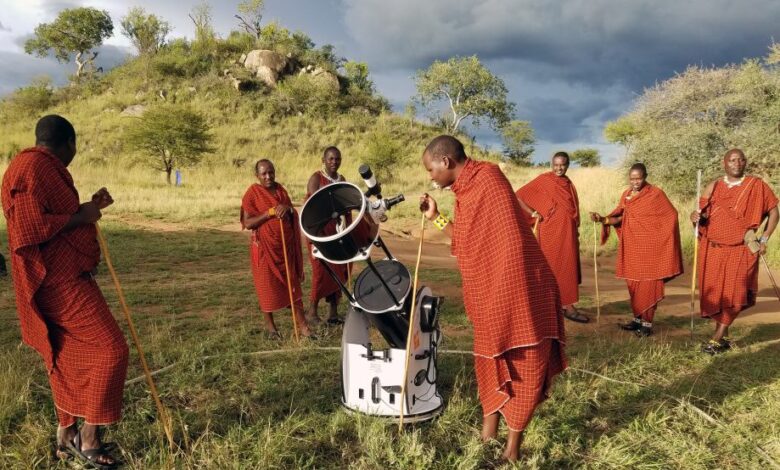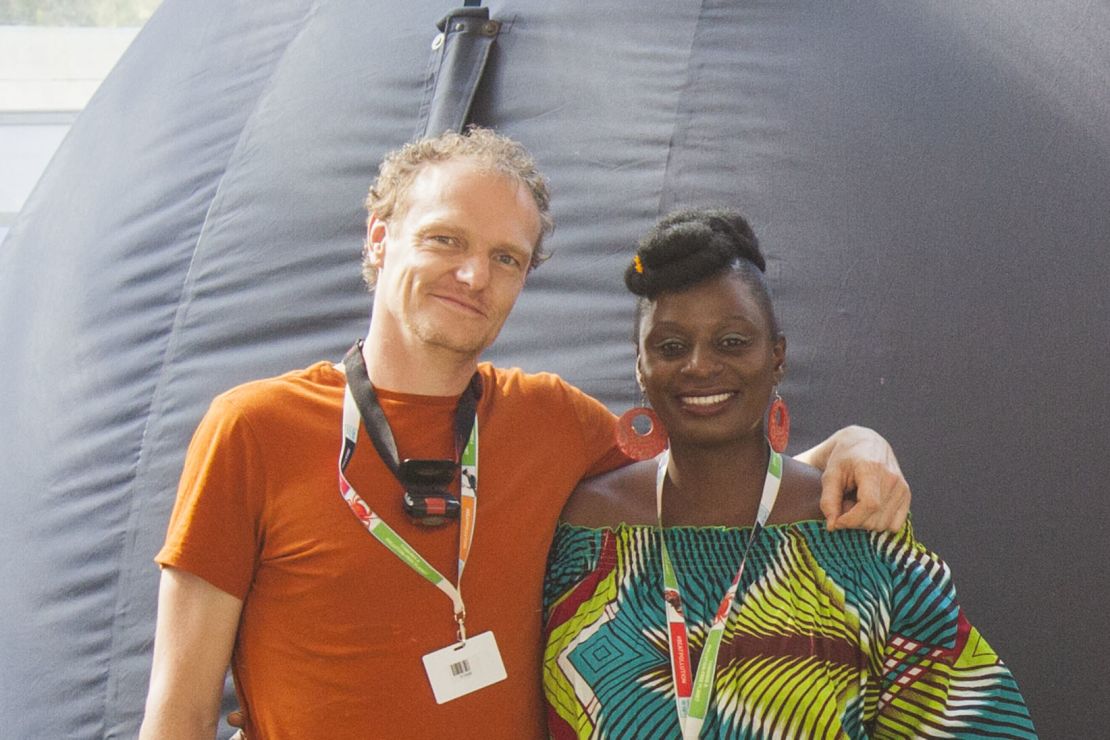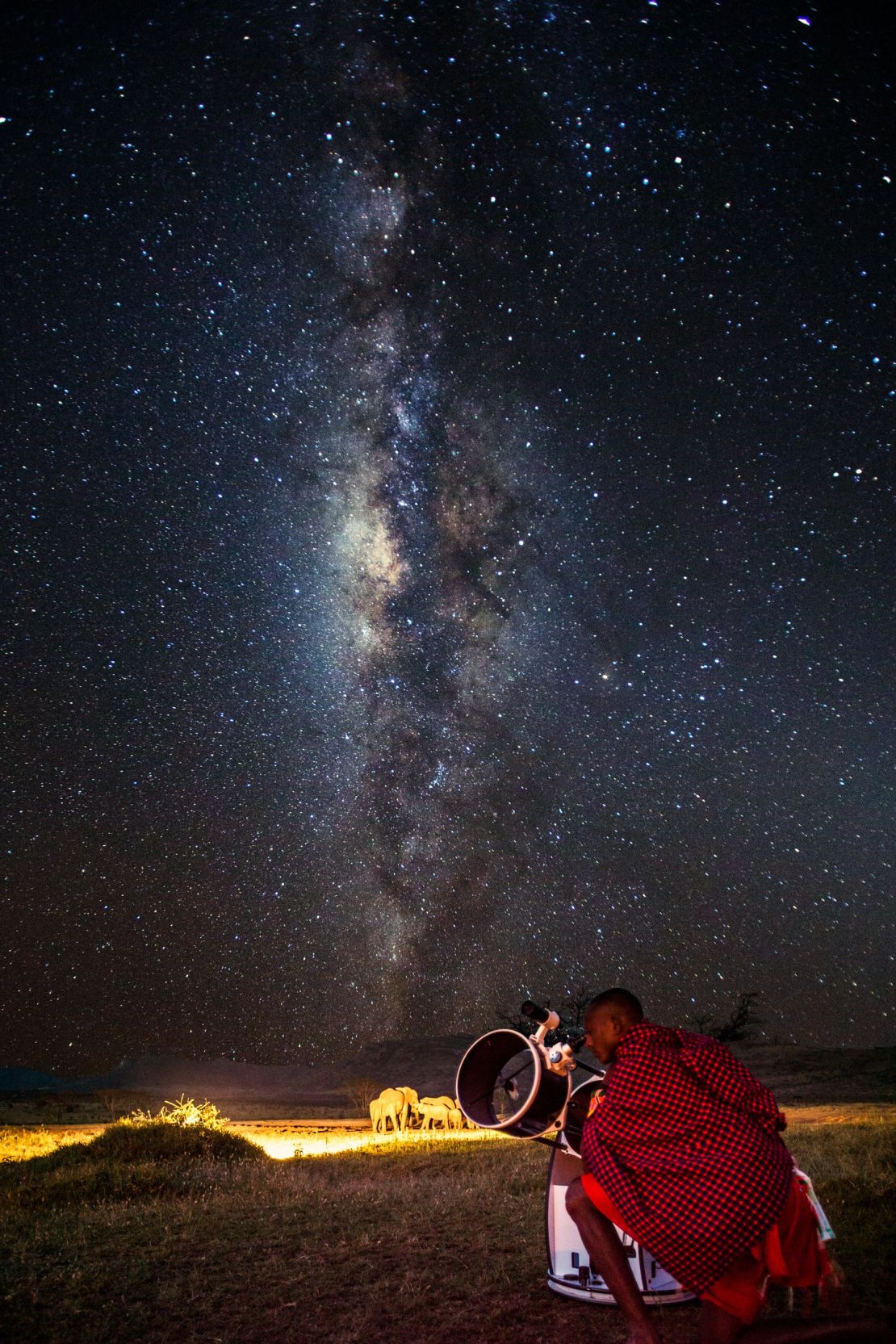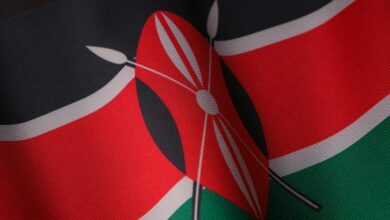
Susan Murabana’s life-changing moment happened at 22 years old, when she looked through a telescope for the very first time. Suddenly, Saturn and its yellow-gold rings were more than just an illustration in a textbook; they were real and the experience was powerful.
The opportunity came while she was a student volunteering with Cosmos Education, a non-profit dedicated to improving science learning in developing countries. By traveling with the organization to schools and villages in her home country of Kenya and helping teach young children, her love for astronomy was sparked.
“I thought I was going to inspire them [the children],” she said. “Instead, I was inspired too.”
In 2006, Murabana joined a teacher training program called Global Hands-On Universe, where she led a space education project. Four years later, she completed an online Master’s degree in astronomy from James Cook University in Australia, before being invited to the University of California as a short-term scholar. Here, she realized she wanted children in Africa to be as exposed to opportunities as children in the US were.
“Seeing the access to all these opportunities for kids — planetariums, science centers, festivals and everything else — I wanted to bring back that,” she said. “I wanted to have something sustainable and Kenyan that the Kenyan community would like.”
Travelling Telescope
In 2014, Murabana and her husband Daniel Chu Owen set up the social enterprise Travelling Telescope.
Combining Susan’s experience in education and public outreach with Owen’s passion for astrophotography and his knowledge of telescopes, the Travelling Telescope is an educational program designed for young children in underserved and remote communities. With just a telescope and a mobile inflatable planetarium, they aim to change lives by giving children a chance to see Saturn, the moon, and various constellations, whilst teaching them basic science and astrophysics.

“There’s a satisfaction you get from going to a school, talking to the children, and seeing their reaction and their anticipation,” said Murabana. “A 12-year-old boy in eastern Kenya even told us, ‘I used to think scientists lie, but now I believe in science.’”
Creating change
Murabana and Owen would love to inspire more Kenyans to be involved in the space industry, and dream of seeing the first Kenyan in space. Owen says most Kenyans aren’t aware that the country is involved in space research, but in 2018 the Kenya Space Agency deployed its first satellite into orbit from the International Space Station, and a satellite station in Malindi, on the coast of southeastern Kenya, is used by the European Space Agency for satellite tracking.
Murabana believes astronomy, or even simply the act of looking up at the sky, establishes an awareness of the need to protect our planet, which can create “a generation of more informed leaders.”
“They say the first environmentalists were astronauts,” said Owen, “because they were the first ones to see the planet in its entirety. We are bringing that home in a way — looking out at space helps us look at our own planet much more objectively.”

But there is also a more personal motivation for Murabana’s work — combatting the perception that astronomy is a Western science.
When she was volunteering with Cosmos Education, the team had graduate students from the UK and US but no one else from Africa. Despite Murabana’s passion for astronomy, she felt she didn’t belong.
It wasn’t until a few years later, when she attended a solar eclipse viewing and a related conference in Ghana themed “African Cultural Astronomy,” that her perceptions changed. The history of astronomy in Africa can be traced back for millennia, and includes the ancient Egyptians and the Dogon people of Mali.
“Everything I was having access to in terms of astronomy was Western, like the moon landings, and we still don’t have astronomy textbooks that have come from the African culture,” she explained.
“So going to this conference and learning about how traditionally, different African cultures have looked up to the sky and tried to make sense of it was just empowering. I felt like I belonged, and that Africans could also be a part of this.”
Cosmic hill
Murabana and Owen fund Travelling Telescope by running astro-tourism services, which include camping trips, called Star Safaris, and astronomy nights for paying tourists.
They are in the process of buying a piece of land in Kenya, away from light pollution, on which they’re hoping to create what they call a “cosmic hill.”
“I would like to build an observatory there,” explained Owen, “and invite people to come and learn about space and watch special events like meteor showers. I want to have a little base, somewhere for us to sit and enjoy the sky with whoever wants to share it.”
So far, over 400,000 people have looked through the Travelling Telescope and the pair want to amplify their impact by reaching more schools. For Murabana, the dream is that “every child, at least once in their lifetime, gets the chance to have a lesson under the night sky.”



